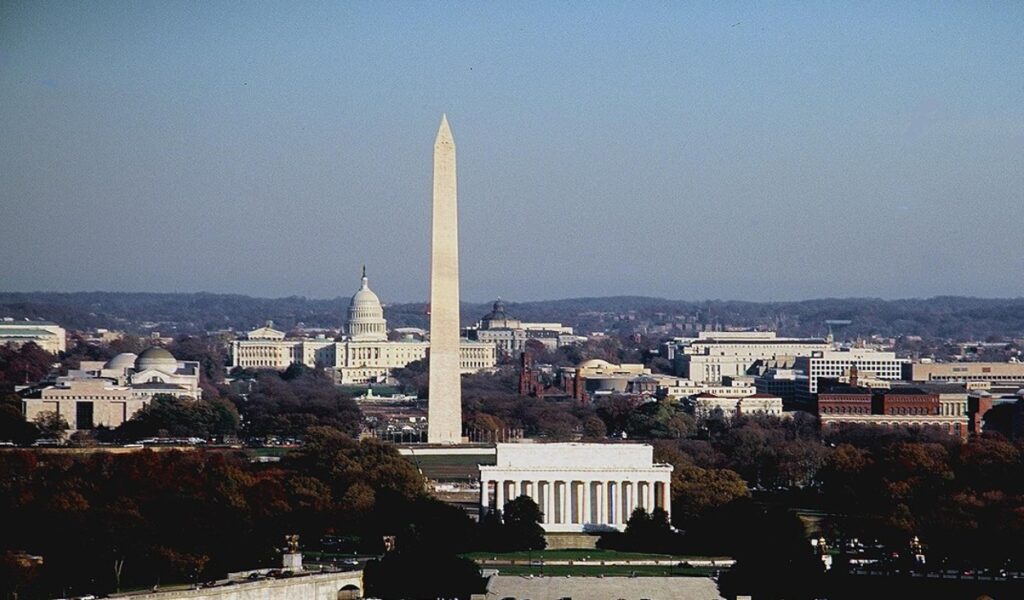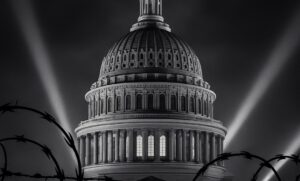
President Trump’s decision to deploy National Guard troops to Washington DC has sparked intense debate about crime statistics and public safety in the nation’s capital. The move comes amid federal investigations into alleged data manipulation by local police and competing narratives about whether crime is rising or falling.
Trump’s Federal Response to Washington DC Crime
In August 2025, Trump ordered federal control of DC’s Metropolitan Police Department for at least 30 days. He also deployed National Guard troops to combat what he called an “epidemic” of crime in the capital.
The president justified this unprecedented action by citing rising violence. He claimed murders in 2023 reached the highest rate “probably ever” in DC. Trump also compared the city’s murder rate unfavorably to international cities like Baghdad and Mexico City.
However, fact-checkers found significant problems with these claims. DC’s murder rate in 2023 was 39 per 100,000 residents – high, but not the highest in the city’s history. The early 1990s crack epidemic produced much worse numbers, with rates exceeding 80 per 100,000.
The Data Manipulation Scandal
The Justice Department launched a criminal investigation in August 2025. They’re probing whether Metropolitan Police Department officials manipulated crime statistics to make the city appear safer than reality.
Commander Michael Pulliam was suspended in May for allegedly downgrading serious crimes. The DC Police Union claims this practice is widespread. Union Chairman Gregg Pemberton explained that supervisors often direct officers to reclassify violent crimes as lesser offenses.
For example, a stabbing might be reported as “felony assault” instead of “assault with a dangerous weapon.” This matters because federal crime reporting systems don’t count all categories equally. The alleged manipulation could artificially lower official crime statistics.
Former White House Press Secretary Karoline Leavitt admitted the Trump administration “reconfigured” crime statistics to support claims of rising lawlessness. This statement came during the broader DOJ investigation.
What the Numbers Actually Show
Despite the controversy, multiple data sources suggest violent crime in DC has genuinely declined. The US Attorney’s Office reported that 2024 violent crime hit a 30-year low, down 35% from 2023.
Homicides dropped 32% in 2024 to 187 deaths. Through mid-2025, murders fell another 12%. Robberies decreased 39%. Armed carjackings declined 53%. These reductions continued broader national trends of falling crime rates.
Independent verification supports these trends. ShotSpotter gunfire detection data shows declining gun violence. Hospital records of firearm injuries also dropped. Homicide statistics are particularly hard to manipulate because deaths require official documentation.
Crime analyst Jeff Asher noted that while some statistics may have been altered, “there’s still tons of evidence pointing to declining violent crime in DC in 2025, especially gun violence.”
Putting DC Crime in National Context
Critics argue Trump exaggerated DC’s crime problem compared to other cities. Analysis of FBI data reveals at least ten cities in states sending National Guard troops to DC actually have higher violent crime rates than the capital.
Jackson, Mississippi had the nation’s highest homicide rate in 2024 among cities with 100,000+ residents. Memphis, Cleveland, and Toledo all exceeded DC’s violent crime rates. DC ranked 10th nationally for overall crime and 17th for violent crime in 2024.
This context doesn’t minimize DC’s genuine public safety challenges. The city consistently ranks among America’s more dangerous large cities. But it suggests the crisis may not be as uniquely severe as portrayed.
Ground News and Media Coverage
Ground News analysis shows significant partisan differences in crime coverage. Conservative outlets emphasize rising crime and data manipulation allegations. Liberal sources highlight declining crime statistics and question federal intervention necessity.
A recent Ground News article examined Trump’s threats regarding Baltimore funding and troop deployment. Similar patterns emerge across cities where federal intervention has been discussed or implemented.
The polarized coverage makes objective assessment difficult. Readers must consider source reliability and potential bias when evaluating crime claims.
The Martial Law Question
Trump’s DC actions have raised questions about martial law implementation. While not formally declared, federal takeover of local police represents unprecedented peacetime intervention.
Legal experts debate whether such measures constitute martial law in practice if not in name. The National Guard deployment adds military elements typically associated with martial law scenarios.
Constitutional scholars worry about precedents for federal override of local governance. The DC situation lacks the traditional emergency justifications that historically accompanied martial law declarations.
Moving Forward: What This Means
The DC controversy highlights broader challenges in crime data reliability and political manipulation. Federal investigation outcomes will determine whether systematic data falsification occurred.
Regardless of statistical debates, residents deserve accurate information about public safety. Political leaders must balance legitimate security concerns with respect for local governance and civil liberties.
The situation also demonstrates how crime statistics can become political weapons. Both parties have incentives to present data supporting their narratives about public safety and governance effectiveness.
Frequently Asked Questions
Where is Washington DC? Washington DC is located on the East Coast between Maryland and Virginia along the Potomac River.
What state is Washington DC in? Washington DC is not in any state. It’s a federal district created specifically as the national capital, separate from all 50 states.
What to do in Washington DC? Popular attractions include the Smithsonian museums, National Mall monuments, Capitol building tours, White House area, Georgetown neighborhood, and numerous cultural venues.
Is Washington DC in Virginia? No, Washington DC is not in Virginia. While it borders Virginia across the Potomac River, DC remains an independent federal district with its own government and laws.
The Reality Behind the Headlines
The truth about DC crime likely lies between competing narratives. Crime statistics may have been manipulated to some degree, as federal investigators are examining. However, independent data sources confirm genuine improvements in public safety during 2024 and early 2025.
Political framing affects how we interpret these trends. What one side calls a crime crisis, another describes as historic progress. Citizens deserve facts free from partisan spin to make informed judgments about their safety and governance.



